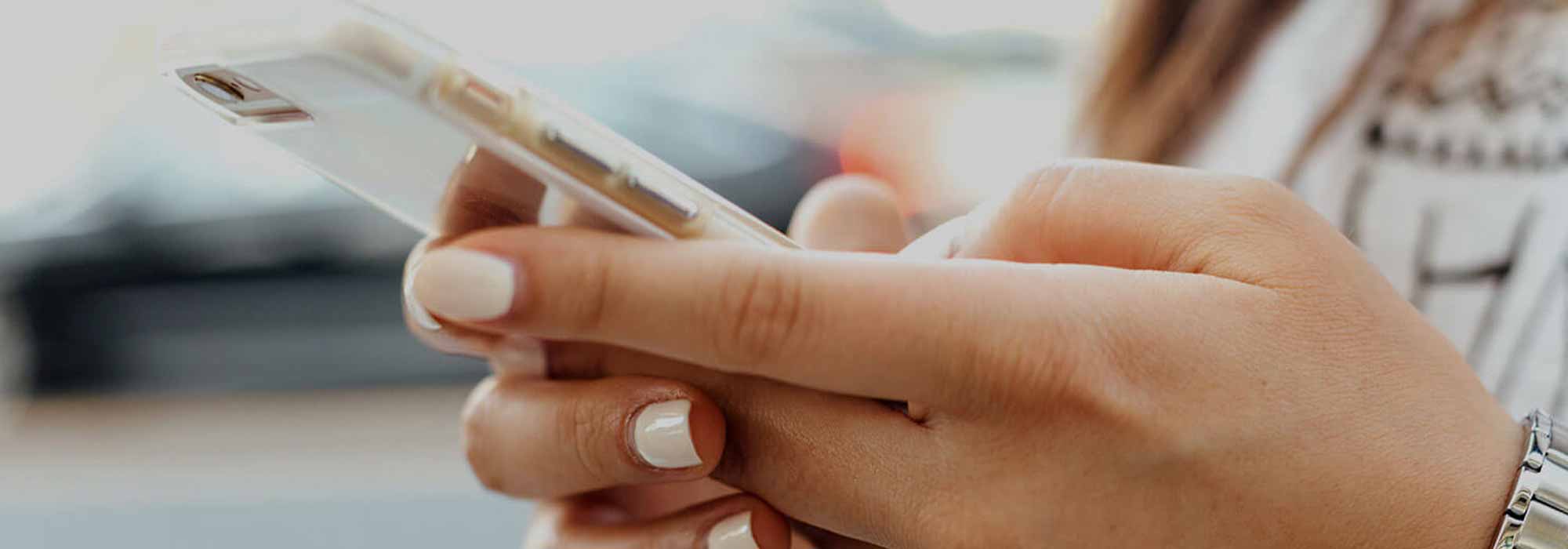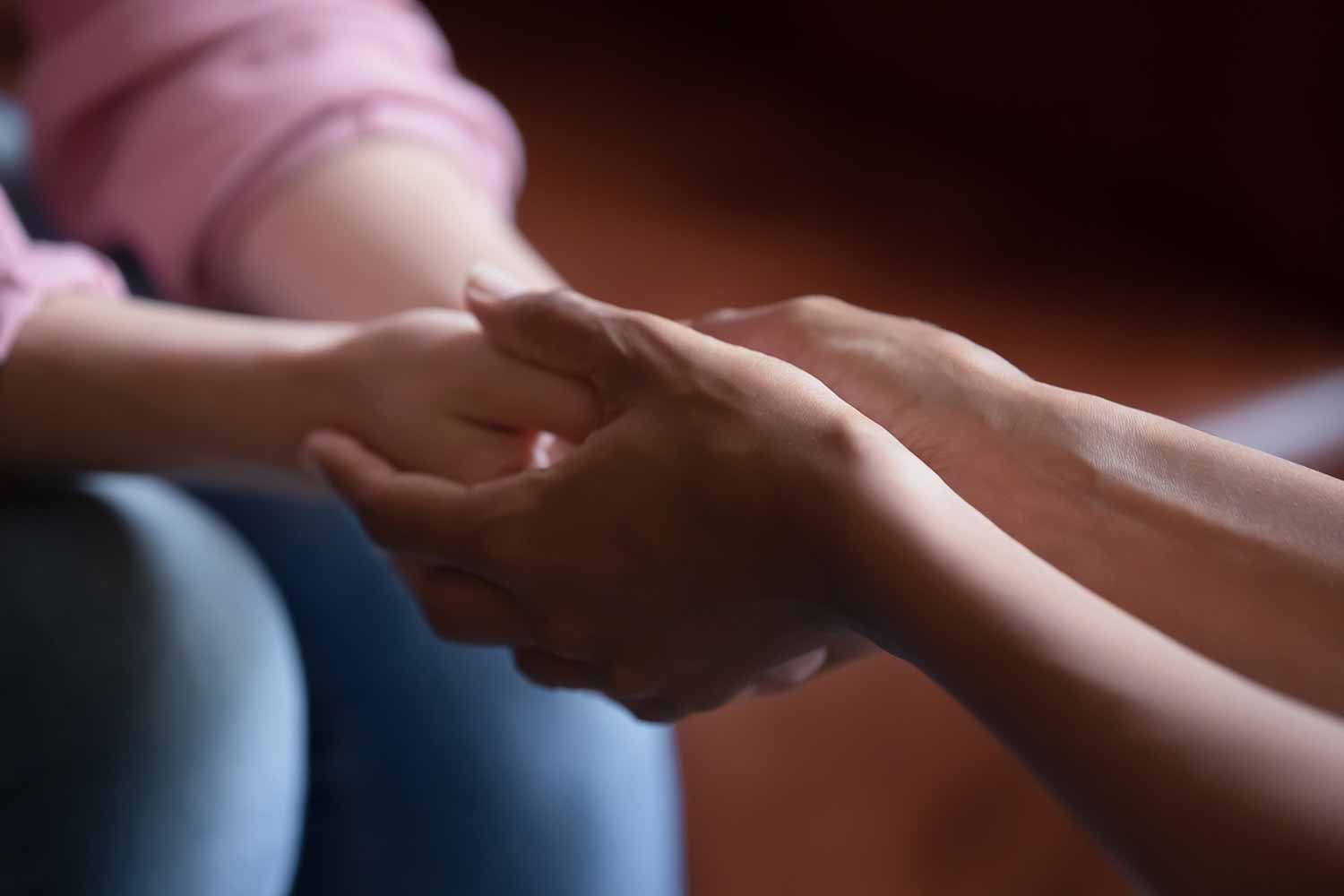
Sexual violence and domestic abuse support
Whether you've experienced sexual violence or domestic abuse yourself, or you're supporting someone who has, you'll find information here about options for support, how to report and how to access further advice and guidance.
Content warning: This page contains explicit reference to sexual violence and rape. It includes advice and how to access help.
Get urgent help
If you, or someone else is in danger, please call +44 (0)1225 875 555 for on campus Bath Spa University Security, or 999 for emergency services.
If you are on campus and need an ambulance please call 999 and let Bath Spa University Security know on +44 (0)1225 875 555.
If you have recently been assaulted and need immediate support
- For urgent medical attention, call 999 for an ambulance or visit your nearest hospital's Accident and Emergency department
- For non-urgent medical attention, contact your GP surgery
- Find information on sexual assault referral centres, domestic abuse services and specialist helplines.
This information is also available in a downloadable, interactive pdf document.
Support at BSU
Our team of Sexual Violence Liaison Officers (SVLOs) and Gender-Based Violence Caseworker have had specialist training to support and advise students who have experienced any form of sexual violence and/or domestic abuse.
This service is available to all students, regardless of gender, sexuality, age, and when or where the incident(s) took place.
Your SVLO will be led by you. They will listen to you and discuss the options available to you. They will:
- help you decide what support you need going forward
- help you access that support
- provide you with information about possible next steps.
SVLOs aren't therapists and they won't ask you to tell them lots of details about what's happened.
They will ask you a few questions to ensure they give you the right information but you won’t be asked for a detailed account.
How do I get support from a Sexual Violence Liaison Officer (SVLO)?
Get support online
Book an appointment with a Sexual Violence and/or Domestic Abuse appointment through MyWellbeing with a Gender-Based Violence Caseworker/Sexual Violence Liaison Officer (SVLO).
Get support by phone
You can make an appointment with an SVLO by calling +44 (0)1225 876543.
You don't have to say what you want to talk about. All you have to do is give is your name and student number and request an appointment with an SVLO.
What will happen during a meeting with an SVLO?
An SVLO will speak with you either in person, on the phone or by video call (camera on or off) depending on your preferred option.
The SVLO will email you before the appointment to explain their role and how the appointment will work.
Appointments are 45 minutes but may be shorter if less time is needed.
In the meeting the SVLO will:
- Explain their role
- Ask you how you are
- Explore the most important issue for you at the moment – you may not know the answer and that’s ok
- Explain the main support and reporting options to help you decide if any are right for you
- Allow you time to decide on next steps (there is no need to make any decisions in the appointment)
- The SVLO won’t ask you to go into detail about what’s happened. They will ask you a few questions to make sure they give you the right information.
What happens next?
After the meeting, the SVLO will send you a summary email and links to any relevant information.
You can take your time to think it through and then confirm with them which options are right for you.
The SVLO can then make referrals to support and advice services.
Will my information be kept private?
The SVLO will normally keep the information you disclose confidential within Student Wellbeing Services.
If they consider you or any other person to be at risk of harm, they will need to share relevant information with senior managers for consideration about any action the University needs to take to ensure your and/or others’ safety.
You are under no obligation to name the other person(s).
If SVLOs are given the names of any BSU staff or students who are named as having committed any kind of sexual violence or domestic abuse, SVLOs are obliged to pass the names to senior University staff.
Senior SWS staff will complete a risk assessment to decide whether the University needs to take action in relation to your and/or others’ safety within the University Community.
SVLOs must share any Safeguarding concerns relating to under 18s or adults at risk to the Safeguarding Lead, in accordance with the University’s Safeguarding policy.
Key points about SVLO support
- SVLOs aren’t therapists; you won’t be invited to talk in detail about what’s happened
- SVLOs are trained to inform you of your options about reporting and support relating specifically to sexual violence/domestic abuse
- SVLOs can connect you to any support options you may be interested in. SVLO support tends to be practical and short term, but is flexible depending on your individual needs and circumstances
- SVLO support is available to you at any point during your time at BSU
Things that SVLOs can discuss with you:
- The option to report to the police (and University, if relevant)
- Specialist support options such as counselling and group support
- Specialist self-help resources
- Specialist helplines
- Academic impact and how to mitigate that
- Safety concerns
- Support options within BSU, e.g. mental health, wellbeing, Disability Services
How do I report an incident?
If you've experienced any form of sexual violence or domestic abuse, there are several ways you can access support. For information on how to report via a Sexual Violence Liaison Officer, visit the SVLO section below. If you prefer to report directly, the following options are available:
Report to the police
If you’d like to speak to an SVLO, they can explain your reporting options and connect you to relevant people to make your report to.
If you prefer to report directly, the following options are available:
To report to the police:
- In an emergency dial 999 and advise that you need to report a sexual assault and would like to speak to one of their specially trained officers.
- To report a crime (non-emergency) directly to the police, call the police non-emergency number 101.
- If you would prefer to initially speak to a police officer somewhere other than your place of residence, ask for this when you call.
There are also specialist agencies who can provide Independent Sexual/Domestic Violence Adviser (ISVA/IDVA) support with police reporting and throughout a police investigation.
Local agencies for this in the Avon and Somerset/Bath area are:
- Safelink (Sexual Violence)
- South Side (Domestic Violence)
Report an incident of sexual violence or domestic abuse to the University
A Sexual Violence Liaison Officer can connect you to the Student Disciplinary Team for you to formally report sexual misconduct or domestic abuse by a Bath Spa University member, or you can contact the Student Disciplinary Team directly on complaintsofficer@bathspa.ac.uk.
Formal reports of misconduct of this nature are dealt with under the sexual violence and misconduct procedure for students.
Specialist helplines
- Rape crisis (24/7)
- Refuge (domestic abuse, 24/7)
- Shout 82528 (text service)
External support
You can find some useful self help resources to support you through this difficult experience:
- The Survivor Pathway offer sexual violence support services within Bath and Nort-East Somerset
- Women's Aid has an excellent handbook which provides practical support and information for women experiencing domestic abuse, with simple guidance on every aspect of seeking support
- The Somerset and Avon Rape and Sexual Assault has a number of guides available, also available in other languages.
Your nearest Sexual Assault Referral Centre can help with:
- Police reporting, including having forensic evidence samples taken for sexual violence that has happened within the last 7 days
- Emergency contraception
- Sexual health testing
Your nearest domestic abuse service can help with:
- Emergency housing
- Advice on reporting and legal options
- Risk assessment
- Safety planning
Special helplines include:
- Rape crisis (24/7)
- Refuge (domestic abuse, 24/7)
- Shout 82528 (text service)

What is sexual violence?
Any kind of sexual activity or act (including non-physical, such as sexual harassment and online sexual abuse) that took place without consent.
There are lots of different types of sexual violence, and no one form of it ‘counts’ more than the other.
The perpetrator is often known to the survivor and it can happen within a relationship as well as outside of one.
Anyone can be a survivor or perpetrator of sexual violence.
What is domestic abuse?
An incident or pattern of incidents of controlling, coercive, threatening, degrading and violent behaviour, including sexual violence
In the majority of cases by a partner or ex-partner, but also by a family member or carer.
Domestic abuse can include, but is not limited to, the following:
- Coercive control - a pattern of intimidation, degradation, isolation and control with the use or threat of physical or sexual violence
- Psychological and/or emotional abuse
- Physical or sexual abuse
- Financial or economic abuse
- Harassment and stalking
- Online or digital abuse.
Domestic abuse can happen to anyone, regardless of gender, sexuality, age or relationship status (you do not need to be living together), and it is never the fault of the person receiving the abuse.
Some of the terminology and concepts around domestic abuse may feel alien to you, as there is a pervasive stereotype of domestic violence happening only within heterosexual couples, a male perpetrator of a female victim-survivor.
It’s often envisaged that this couple are older, live together, are married, have children.
There are many abusive relationships that fit this description, and it may be that this reflects your situation.
But many students have experienced/are experiencing abuse within their relationship that looks different to this – we’re here to support all students, of all genders, sexualities, ages, social background, race, ethnicity or nationality.
Contact Student Wellbeing Services
- Current Bath Spa University students: Access ‘MyWellbeing’ to ask questions, book appointments and view upcoming events.
- Future students: Access ‘MyWellbeing’ to ask questions and view upcoming events.
- University staff: Log a call via ‘MyServices’.
- Third parties, including parents and supporters: Email studentwellbeing@bathspa.ac.uk.
- Telephone enquiries: +44 (0)1225 876543
- Telephone enquiries: Student Wellbeing Helpline available 24/7
- If you are a student and want to let us know that something hasn't gone well with your wellbeing support, please complete this form.
How are we tackling harassment and sexual misconduct to make Bath Spa University a safer community?
At Bath Spa, we're committed to ensuring that the whole community feels safe on campus. Report and Support is our online tool to let the University know about any concerns relating to bullying, harassment, abuse or violence.
Visit the Report and Support page to find out how to use the tool and view data from previous years.
The Office for Students have now released Condition E6 on Harassment and Sexual Misconduct as part of their Conditions of Registration, which will come into effect from August 2025.
We will add comprehensive detail here in response to the Condition in the coming months.